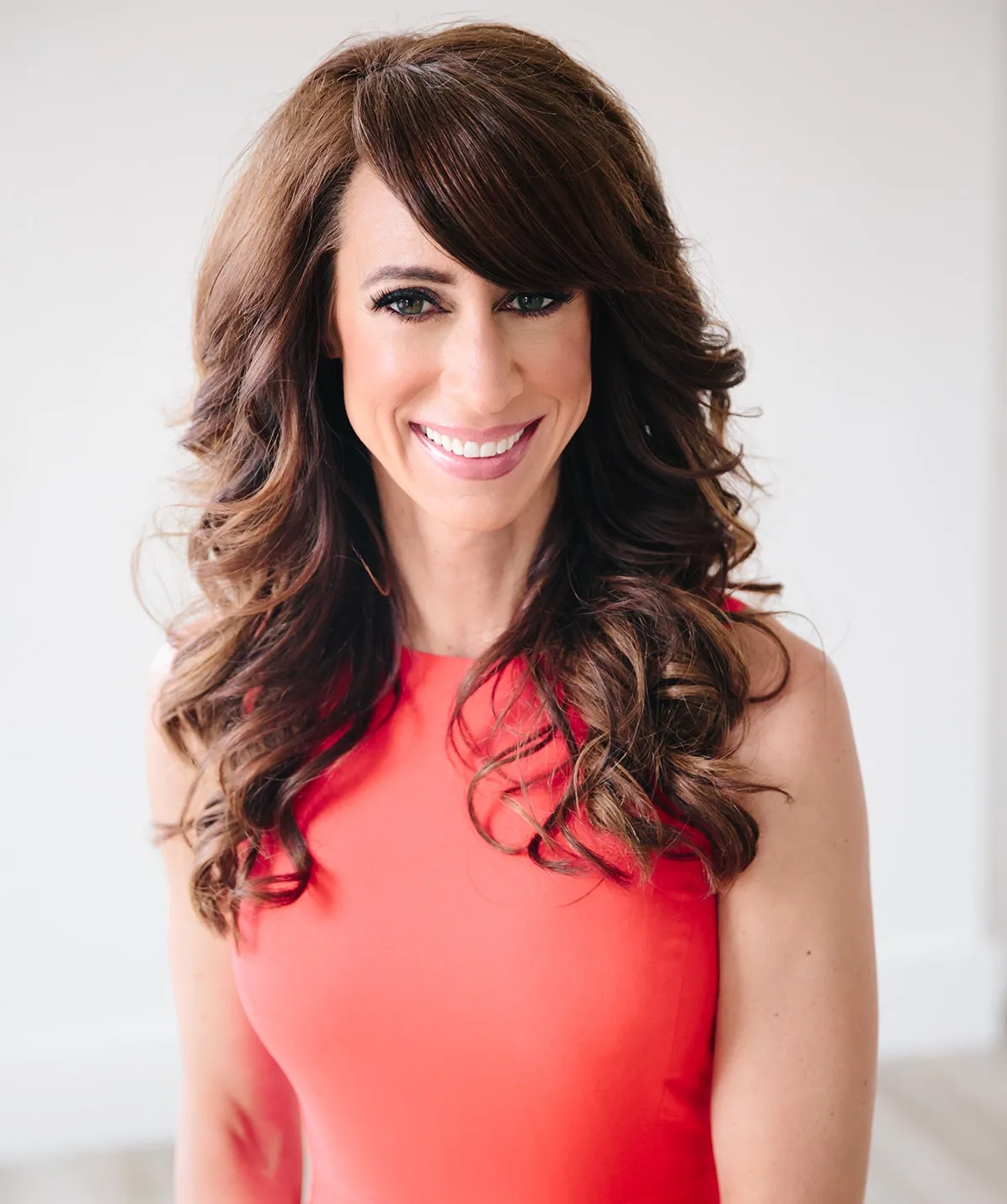Welcome to Dear Melissa, where we answer your questions about transitioning into or completing a Whole30, successfully sticking to your new healthy habits, and figuring out how to make this lifestyle work in the real world. Today, we’re helping a college student create a plan so she can finally finish a Whole30 around all of her other obligations.
Dear Melissa, I am writing to you on behalf of myself and all the university students out there! I am starting my fourth Whole30 in a few days and I hope to complete it this time. I have failed the last three times due to work/school related stress and binge eating on chocolate before finals. How can I successfully Whole30 and get through school, homework, my part-time job, and having time to work out? All this, on top of wanting a little bit of downtime to spend by myself, with my family/friends/boyfriend? My GPA is extremely important to me so all my exams and essays bring a lot of stress. That stress triggers cravings for chocolate and mac-and-cheese. Add a part-time job to the mix and sometimes I crack and give in because I can’t take it anymore. I live with my parents and my house is filled with foods that are not Whole30 approved. I don’t always take the time to run out to the store and cook something healthy, especially when I have to finish writing an essay before my shift starts. By the time the day is over I can’t even imagine working out! Would you have any tips or advice for all the students out there that might be in a similar situation? –Valerie, Montreal, QC Dear Valerie, I hate to break it to you, but this “lots to do, not enough time” is only going to get harder as you get older. Wait until you pile on a full-time job, a mortgage, kids, and running your own household. I’m not at all trivializing your concerns—I’m applauding your desire to figure out how to “balance” things now, before life gets even more complicated.
By the way, I think the idea of balance is kind of B.S. You’ll never be able to successfully “balance” all the competing interests in your life, and trying to make everything fit in equally is an exercise in lunacy. So let’s scrap the idea Doing All the Things and talk about how to prioritize your goals, create new habits, and conserve your willpower so you can succeed with the Whole30. First, let’s talk about goals. School is your full-time job right now, so that has to come first. You also have a paying part-time job, and unless you intend to quit to buy yourself a little more time and energy, that’s your second priority. Now, what comes third for the next 30 days? Tough love: unless it’s the Whole30, you’ll likely not find the motivation to successfully complete the program. Until you get crystal-clear on your priorities and truly commit to the program, you’ll flit around between the gym and your friends and meal prep whenever you have free time. Constantly having to choose between competing interests (some instantly gratifying, some providing future benefit) is a huge drain on willpower—not to mention an ineffective strategy for social, fitness, or dietary success. So, is the Whole30 your top priority (after school and work) for the next 30 days? (Remember, it’s just a month-long program, not the rest of your semester or your life.) If you answered “yes” and really want to experience the benefits of the program, then we can proceed to the next step: creating a plan and getting you on a schedule.
I really like the idea of using a structured routine to help build a new habit. Based on willpower research, the more choices you have during your day, the faster your willpower bank is depleted. A schedule can help you limit your choices, such that you (a) have a detailed plan—the brain loves a plan, and is less likely to revert to old (instantly gratifying) behavior when it’s presented with a road map, and (b) are able to conserve willpower to help you resist less healthy temptations when things get crazy. So, create a weekly schedule around your top three priorities: classes, homework, and studying; your part-time job; and Whole30 meal prep. Be as specific as you can, and plan out 3-4 days at a time—up to a week, if you have a good enough idea of your work hours and school demands. Try to make things as routine as you can for the entire month. For example, if you always have 7 PM – 8 PM free, make that your dedicated meal prep time every single day. If you end up not needing to meal prep one night, sweet, free time! But this way, your top priorities are always blocked out.
For the next 30 days, treat your schedule as if it’s a Whole30 rule. It’s non-negotiable, black and white. It’s 7 PM? Time to meal prep. (Feel free to watch the latest episode of Scandal while you chop—multi-tasking is okay when school work isn’t involved.) It’s Tuesday? On Tuesday, you grocery shop. Taking some of the decisions out of your hands and making them a “rule” is what helps your brain transition a new behavior into a habit (and conserves willpower—do you see a theme here?), and we want to get you into the habit of building healthy eating into your everyday life. As you don’t yet know how to do that on the fly, creating a routine and a schedule can give you the structure you need until it feels second nature. Some days, you may have little time for anything other than your top priorities. That’s going to have to be okay. Remember, it’s only 30 days, and you chose the Whole30 over spending time with friends or going to the gym this month. (Trust me, the benefits you’ll gain from 30 days of Whole30 will far exceed the benefits you’d gain of going to the gym a few days a week.)
Okay, so you’ve got your priorities straight, you’ve got a routine and a schedule you’re going to commit to for the next 30 days… now, here are some willpower-conserving tips straight from habit research.
- Study in chunks, don’t cram. Studies show that college students who expend tons of willpower all at once cramming for an exam are far more likely to indulge in junk food, alcohol, or cigarettes (ew). By scheduling blocks of school work and study time every day, you won’t have to expend all that willpower to cram, which means you’ll be better prepared to resist food-related temptations.
- Do the most important thing early in the day. Studies show that willpower is generally the highest when we first wake up, and depletes as the day goes on. So put the tasks that feel the hardest or are the most important first, while your willpower is high! Maybe that’s Whole30 meal planning for the next few days, or spending 30 minutes on that project you know is due in a few weeks, or studying two pages of vocabulary for your test on Thursday. Use your mornings for the tasks you find the least pleasant or most challenging, and save the easier stuff (chopping vegetables, preparing a sauce, making lunch for tomorrow, or organizing your notes from class) for later in the day.
- Reduce your distractions. Avoiding checking your Instagram feed, turning off the TV to go to bed early, and having tempting food in your pantry all pull from the same willpower bank. Do your best to minimize temptations throughout the day, so you can conserve that willpower when things get hard. Turn off social media notifications while you’re studying (or put your phone in the other room!), make a rule that there’s no TV after 9 PM, and ask your family to choose an out-of-the-way drawer or shelf in your fridge and pantry for their less healthy foods.
In summary, with some solid prioritizing, a structured schedule, and some planning and preparation tips straight out of habit research, you should be able to make this Whole30 a success! (And to help you out as a struggling college student, I’m going to hook you up with a Whole30 Daily subscription, too.) Let me know how things went when your Day 31 rolls around—I’ll be expecting an email. Best in health, Melissa
Got a question for Melissa? Submit it using this handy form.
Remember, we aren’t answering questions about the Whole30 rules via this column (use the forum!), nor are we able to offer you specific advice about your medical issue, health condition, or body composition.  Melissa Urban is a Certified Sports Nutritionist, and the author of the New York Times bestselling books It Starts With Food and The Whole30: The 30-Day Guide to Total Health and Food Freedom; and the upcoming Food Freedom Forever. She has been featured in the Wall Street Journal, Details, Outside, SELF, and Shape as the co-founder of the Whole30 program. Melissa lives in Salt Lake City, UT. Photo credit: Marie Carmel Photography
Melissa Urban is a Certified Sports Nutritionist, and the author of the New York Times bestselling books It Starts With Food and The Whole30: The 30-Day Guide to Total Health and Food Freedom; and the upcoming Food Freedom Forever. She has been featured in the Wall Street Journal, Details, Outside, SELF, and Shape as the co-founder of the Whole30 program. Melissa lives in Salt Lake City, UT. Photo credit: Marie Carmel Photography














